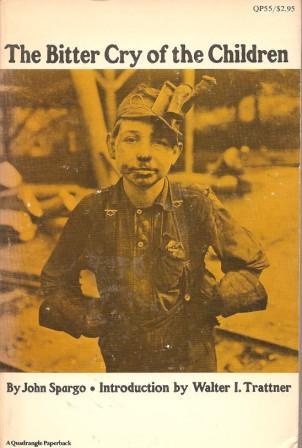The term itself came from Theodore Roosevelt who thought these journalists were going too far. Despite being considered a progressive president, Roosevelt gave a speech in 1906 called “The Man With the Muck Rake” where he claimed that there was a time for seeking the truth, and times one must overlook it a carry on.
An example of a Muckraker is Jacob Riis, an immigrant from Denmark who worked as a police reporter for various papers and magazines. Through his platform, he was able to depict and advocate for the slums in lower Manhattan. "How the Other Half Lives: Studies Among the Tenements of New York," and "The Children of the Poor," were two of multiple books he wrote about tenet life and sanitation. His writing led to the Tenement House Commission and improved sanitation laws.
Another noteworthy Muckraker was John Spargo who immigrated to the US in 1901 from England. He joined the socialist party and advocated specifically for child worker rights. In 1906, he wrote a book about how dangerous it was for boys working in the coal mines. The book was called “The Bitter Cry of Children” and was well known around America.

Sources
http://www.ushistory.org/us/42b.asp
https://www.khanacademy.org/humanities/us-history/rise-to-world-power/age-of-empire/a/muckrakers
https://www.thoughtco.com/who-were-the-muckrakers-104842
I find it really interesting how ideas and laws that we today see as obvious were considered very radical, and were met with opposition. Children were put to work as soon as they could to make ends meet for the family, most likely preventing access to education for poorer families and virtually made it impossible to climb the economic ladder in America. In Britain, the Factory Acts put regulation on the amount of time and what kinds of jobs children are allowed to legally work, and the Mining Act in 1842, caused a gradual decline in children working at the mines by 1870. These regulations may have influenced John Spargo to publish works exposing child labor in the mining industry of America.
ReplyDeleteSource:
Deletehttps://eh.net/encyclopedia/child-labor-during-the-british-industrial-revolution/
Overall, I found the examples of how potent and the graphic topics that many of these muckrakers spoke out about very provocative. Another extremely influential muckraker that I found was Ida Tarbell, who was a female journalist. Her most influential piece was The History of the Standard Oil Company, which exposed the exploitative measures that many monopolistic industries used to climb to their position in society. She later became a prominent writer and attended several government events.
ReplyDeletehttps://www.britannica.com/biography/Ida-Tarbell
It is interesting to see how the muckrakers' courage to bring light to issues that bother them in society mirrors how news sources today seek to inform the public about issues they find important for the public to know about. Although some face criticism, they continue to voice their opinions and spark change in society. Upon further research, I found that muckraker reports led to the Meat Inspection Act of 1906 and Drug Act of 1906, which both helped increase the government's ability to prevent consumers from receiving unsanitary products.
ReplyDeletehttps://ohiohistorycentral.org/w/Muckrakers